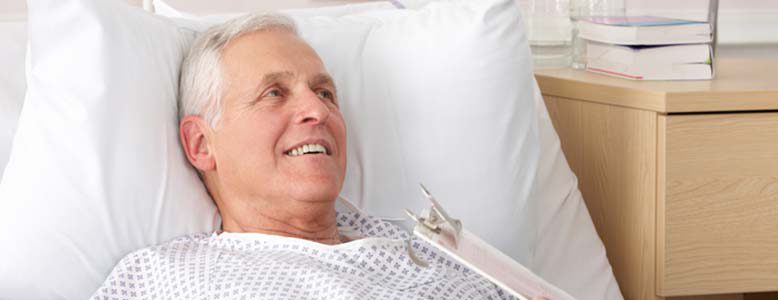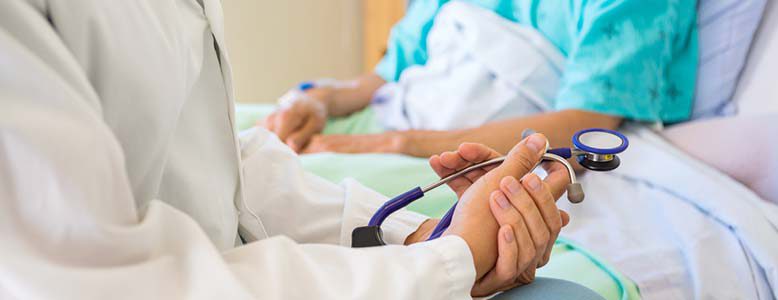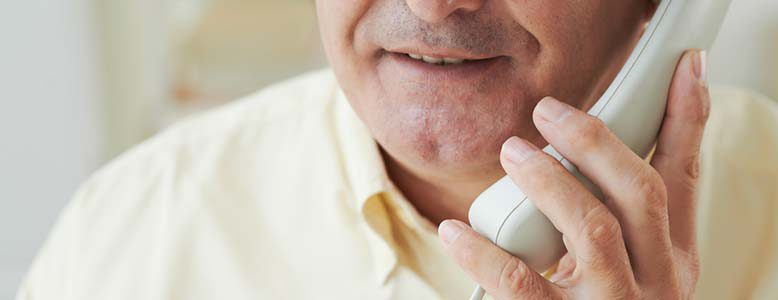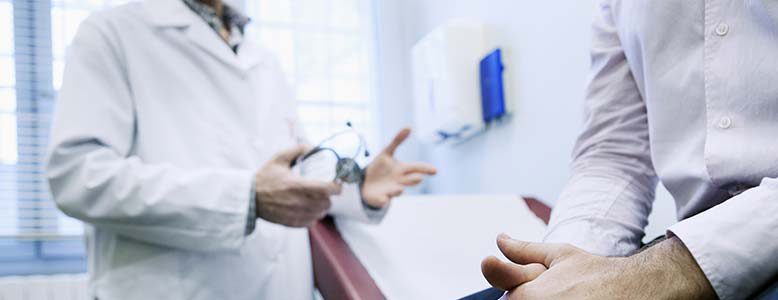What to expect after surgery
After the surgery you will be transferred from recovery to the ward. When you first arrive back in the ward you will have a drip in your arm giving you fluids which is removed when you are drinking enough oral fluids.

You will have a catheter in your bladder connected to irrigation fluids. The drip and the catheter will be removed when the urine is clear with a minimal amount of blood in it.
Pain
You can expect to have mild pain at the operation site. Pain in the prostate is felt in the rectum, perineum or lower abdomen, and there are a number of ways to manage your pain. You will be ordered painkillers and if you have pain, it is important that you ask your nurse for some pain killers as you will recover faster if your pain level is controlled. The pain is usually not severe and should continue to decrease in intensity for 7-10 days after the operation.
Occasionally patients can have pain at the tip of their penis and the urgent desire to pass urine despite having a catheter in the bladder draining urine. This is called bladder spasms. It is due to the catheter irritating the bladder and causing the bladder to contract giving the sensation of the urgent need to pass urine. If this occurs, let the nursing staff know as there are several medications that can be used to treat these symptoms.
Intravenous fluid (Drip)
You will have a drip in your arm when you come back from surgery. This will be removed when you are able to eat and drink normally and when you are no longer feeling sick. If you feel nauseated please tell your nurse as she will be able to give you medication to make you feel better.
Bowels
You may experience some difficulty with moving your bowels in the early days after the surgery. It is important that you do not strain and if you are having trouble moving your bowels let the nursing staff know so they can give you some laxatives and stool softeners.
Catheter
Immediately after the operation the catheter is connected to irrigation fluids to wash blood and blood clots out of the bladder. As the urine clears the irrigation will be slowed and eventually stopped. The catheter will be removed when the urine is clear and this will usually occur on the second morning after the surgery. To remove the catheter the balloon that held it in the bladder is deflated. There is often a stinging sensation for a few seconds as the catheter passes out of the bladder into the urethra.
After it is removed most men pass urine normally, however occasionally some men have difficulty and require another catheter to be reinserted for a short time. Once the catheter is removed you will be observed for approximately 4 hours, and if you are passing urine normally you will be allowed to be discharged from hospital.
Urination
Once the catheter comes out you make have a burning sensation when you pass urine. This is quite normal and will usually settle within a few days. If the burning sensation lasts longer than 3 days or you have fevers, temperatures or feel unwell then you must contact Dr Swindle or your GP immediately.
Most patients will have an excellent flow immediately after the surgery but most men will have a period when they pass urine frequently and with some urgency. This is variable but can last up to 8-12 weeks and will eventually resolve. After a TURP a scab forms on the cut surface of the prostate. This scab usually falls off at around 7-10 days. When this occurs a small piece of tissue can be passed and some bleeding can occur. If this occurs don’t be alarmed but increase your fluid intake. It will usually settle within 24-48 hours. Contact Dr Swindle if you are passing large amounts of blood clots or if you are having trouble urinating.
Post operative care
After a TURP, the cavity left in the prostate will take between 8 to 12 weeks to heal completely and the full benefits of the procedure appreciated.

Most patients will have greatly improved flow immediately after the operation but urinary frequency and urgency may take up to 12 weeks to resolve. The following are a few tips to aid your recovery:
Fluid intake
During the first 1-2 weeks after the operation it is important to drink plenty of fluid to flush any new bleeding from the bladder. The amount of fluid drunk usually depends on the amount of blood in your urine. If your urine is quite bloodstained you may need to drink up to 3 litres of water per day. If you urine stops being bloodstained and the prostate cavity has healed then a fluid intake of 2 litres per day is adequate. Avoid alcohol and coffee for the first few weeks after the procedure as this may make urinary frequency and urgency worse.
Antibiotics
Sometimes after a TURP patients are discharged on antibiotics. This usually occurs in patients who had a catheter in before the operation or who had been having urinary infections before the operation. It is important that if you are discharged on antibiotics that the full course be completed.
Activity
To lower the risk of bleeding after the operation, it is important not to be too active. Avoid lifting, gardening, golf or other demanding activities in the first two weeks or so after surgery. Normal daily activities such as normal walking can occur immediately after the procedure however try to avoid driving a car for at least a week after the procedure Sexual activity should be avoided for at least 4 weeks.
Bowels
It is important not to become constipated as the need to strain to empty the bowel may cause bleeding. Extra fibre in the diet and a larger fluid intake helps to make sure the bowel actions are soft and regular. If you are prone to constipation let Dr Swindle and the nursing staff know and you may be prescribed a laxative to take whilst in hospital and after discharge.
Bleeding
Within the first few weeks after surgery, the scab where prostate tissue has been removed may sometimes loosen and cause some bleeding. By resting when this happens and drinking plenty of fluid, the bleeding will usually stop. If it does not stop or if it becomes difficult to pass urine please contact Dr Swindle on 07 3010 3333 or 0409 103333.
When to contact Dr Swindle post surgery
Dr Swindle is available 24 hours a day 7 days a week on 0409 103 333. Never hesitate to call him if you have any concerns or if you feel unwell.

He would prefer to be contacted and know if there are any problems. If you cannot contact Dr Swindle and you are concerned then go to your nearest emergency department.
There are certain complications that require emergency medical treatment and if any of the following occur go immediately to your nearest emergency department. Once you have sought emergency treatment then contact Dr Swindle or have the medical staff contact Dr Swindle.
- Severe infection – Sepsis – This is a severe form of infection and is otherwise known as blood poisoning. This occurs in 1 in 200 patients. The symptoms consist of fevers, chills, shaking, lethargy, warm skin, shortness of breath, rapid heart beat, drowsiness and a general feeling of being unwell. If this happens it is a medical emergency. You must go to your nearest hospital or emergency department as soon as possible and do not delay. Once having sought emergency medical treatment then contact Dr Swindle on 0409 103 333.
- Bleeding – If you are passing a large amount of blood in your urine or are passing blood clots contact Dr Swindle. If you can’t contact Dr Swindle then go immediately to your nearest emergency department.
- Difficulty urinating – If you are having trouble passing your urine and have abdominal pain contact Dr Swindle. If you can’t contact Dr Swindle then go immediately to your nearest emergency department.
Follow up after a TURP

Dr Swindle would like to see you six to eight weeks after your operation in the rooms for a post surgical consultation. Please telephone the rooms to make this appointment 07 3010 3333.
If you have any queries regarding the TURP procedure, please contact Dr Swindle’s office directly on the above phone number or by email at reception@qprostate.com.



